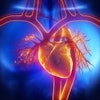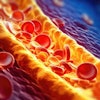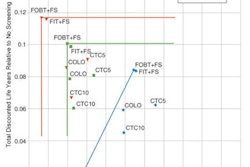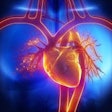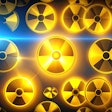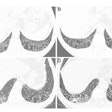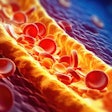When whole-body scanning chain Heart Check America's (HCA) Denver facility was shut down by Colorado regulators in April, it was the last straw for a company that had been in decline for the last 18 months. Now, the firm's former employees are telling the story of HCA's stunning rise and rapid fall, one that left a trail of customers with unfulfilled contracts and workers with unpaid wages.
Heart Check America operated a chain of whole-body scanning centers across the U.S. that focused on offering screening studies to asymptomatic individuals without physician referrals. The firm began generating headlines with the closure of the Denver center; this was soon followed by a lawsuit filed by the state of Illinois against two HCA centers in that state. Most of the company's imaging centers in Illinois and other states have since shut down.
Heart Check America's rise was powered by a novel -- and aggressive -- sales strategy that concentrated on selling 10-year screening packages to healthy customers for thousands of dollars. While state regulators, radiologists, and public health advocates have condemned the company's tactics, the packages were popular with many consumers, say several former employees who worked at one of the company's Illinois centers. Indeed, some former workers say they witnessed firsthand cases in which HCA scans detected pathology in customers -- and may have even saved lives.
HCA's 'innovation'
The "innovation" behind Heart Check America -- and what generated most of the outrage against the firm -- was that it applied sales tactics pioneered in the time-share vacation rentals industry to healthcare. The company's founder, David Haddad, had worked in the time-share industry for years, and he brought the same sales and marketing techniques to Heart Check America, which previously had been a conventional imaging center relying on patient referrals, according to a radiologic technologist (RT) who worked at the company's Tinley Park, IL, imaging center. HCA's executive management team also included his wife Lisa Haddad and mother Sheila Haddad.
Heart Check America often moved into new geographic markets through the acquisition of an existing imaging center that offered CT services, usually electron-beam CT (EBCT) scanning using technology pioneered in the 1990s by Imatron (which was acquired by GE Healthcare in 2001). Early research using EBCT found that the scanner could detect the presence of coronary calcium, an important independent predictor of future heart attack risk.
HCA centers were typically staffed by experienced radiologic technologists who dealt with customers, according to the Illinois technologist. Scans were outsourced to external radiology groups for review; HCA usually did not employ any radiologists itself and radiologists were never onsite at any of the centers, the former employee said.
Heart Check America's lack of onsite radiologists has been cited by state regulators in their complaints against the firm as a sign of its allegedly medically questionable practices. But the technologist said the situation was not unlike that of many mainstream imaging centers, where radiologists typically read studies over teleradiology links from hospitals or their homes.
Sales tactics
Heart Check America's marketing strategy revolved around a sales team oriented to selling 10-year scanning packages to healthy individuals for "preventive screening." HCA frequently tried to hook new customers by offering them free consultations or heart scans, either through advertising or by exhibiting at events such as golf shows.
When individuals visited a center for their free scan, they would be "upsold" to the 10-year scanning packages. Customers could always decline the packages and receive the heart scans, but many frequently bought the packages, the RT said. She added that she didn't think the offer was particularly aggressive, and much of the pitch was based on the science behind coronary artery calcium scores.
"The education they were giving, the PowerPoint presentations, were very informative; it was very educational," she said.
One prospective customer even took a job as a receptionist at Heart Check America after receiving her first scan. She said she was initially suspicious of the firm's sales pitch after receiving a call from a telemarketer in the Philippines whom she "could barely understand." But after researching on the Internet and talking to friends, she and her husband decided to give it a try, buying a 10-year package for $3,000 up front with $199 annual payments for the next 10 years.
Not long after her first scan she began working for the firm. She said she witnessed firsthand some of the alleged quality problems in the firm's work. Some radiology reports indicated that Heart Check customers were women when they were actually men, or reports had incorrect patient information such as date of birth. One said a customer's gallbladder was normal when the patient's gallbladder had been removed previously.
"There were a lot of mistakes," she told AuntMinnie.com. "I hadn't worked in medical, so I didn't know if it's common to have that many mistakes."
Successful model
Despite the quality problems, Heart Check's business model was wildly successful. Revenue doubled at one imaging center that converted from the conventional radiology business model to the Heart Check America network, rising from $10,000 per day to $20,000 per day in a year -- even in the midst of a grinding recession.
"There are a lot of people concerned about preventive healthcare, and you didn't have to have a doctor's prescription to have a scan," the former RT said. "You could walk in and say, 'I want to pay $995 for a body scan.' There are a lot of people out there willing to do that. There may have been a recession in the last two years, but the Haddads made millions in this business."
It helped that many Heart Check America clients could finance the scanning packages through credit cards or via relationships that HCA had with consumer finance companies, many of which would receive a percentage of the dollar value of new HCA contracts as their fee, the former employee said.
Given the unorthodox tactics, were Heart Check America customers getting fleeced? No, said the technologist, who pointed out her years of experience in radiology. While some HCA technologists struggled with the marketing aspects of the business model, they always treated customers just as they would a medical patient in a more conventional facility, she said.
With no radiologists onsite, RTs frequently even discussed suspicious findings with patients. Technologists always talked to patients with coronary calcium scores higher than 400, while patients with scores higher than 1,000 were urged to see their physicians.
"We were the only medical [professionals] in those buildings," the RT said. "There were no physicians, no radiologists to talk to."
Indeed, the former Heart Check receptionist said her husband's life may have been saved by a Heart Check scan, which indicated that he had a coronary calcium score of 700 -- considered to be high risk. He visited a cardiologist after the scan and was found to have 90% blockage in one artery, which resulted in the placement of two stents.
Growing problems
A second RT who also worked at the Tinley Park location said that the business seemed to operate smoothly in the months following its opening in January 2009. Patients were scanned and reports were returned promptly by the radiology group with which Heart Check America had contracted for reading studies over a teleradiology link. Patients with suspicious findings were quickly referred to cardiologists or hospitals, she said.
But things started going south after HCA switched to a new radiology group in the fall of 2009. Report turnaround times went from three to four days to several weeks, and soon paychecks for HCA employees also were delayed. The Tinley Park facility formed a customer service center to handle calls from disgruntled patients, with technologists pitching in to help on slow scanning days.
The backlog got so bad that at one point a Heart Check America manager proposed a solution: Finish the reports of the people who bought 10-year scanning packages first, and then work backward through the backlog. This, despite the fact that there were HCA customers who had received free scans that had suspicious findings and who probably required follow-up, the second technologist said.
"We told him you couldn't do that," she said.
The former receptionist at the Tinley Park location confirmed the deteriorating situation. She was constantly fielding calls from customers wondering where their reports were, she said, and Heart Check management had her transfer calls between customer service staff to wear out callers.
She also began questioning the effectiveness of the coronary artery scores as she learned more about the technology through her husband's case.
"Just because you have a low score doesn't mean you can't have a heart attack," she said. "This shows the hard plaque; it's the soft plaque that causes a heart attack."
Things finally came to a head one day when the Tinley Park center was visited by a group of nine men representing a marketing firm to which Heart Check America owed money. One man blocked the door, while another was said to be packing a handgun, according to the receptionist. After informing management that they weren't leaving until the marketing firm was paid, HCA management produced a check and the men went on their way.
Valuable work?
Eventually, the bottom fell out of Heart Check America, triggered when Colorado state regulators ordered the Denver facility to close because it was performing scans without physician referrals. The Tinley Park facility closed not long after the Colorado news broke: All three former HCA employees interviewed by AuntMinnie.com said they were laid off either on April 23 or shortly thereafter. Representatives of Heart Check America management were unable to be reached for comment.
Despite the firm's problems, both technologists interviewed by AuntMinnie.com said they valued the work they did at Heart Check America, especially the cases in which HCA scans found life-threatening pathology. At a conventional imaging facility, patients are frequently scanned and never seen again, the first technologist said. But HCA employees had closer relationships with their customers.
For example, one woman who received a quadruple bypass for findings first detected on an HCA scan often stopped back at the center with cookies and flowers, the first technologist said. In the technologist's first 90 days at the firm, her facility found pancreatic cancer in a woman with no symptoms. Her doctor said she would have been dead if the cancer had been detected six months later, the RT said.
Still, two of the three women are pursuing claims against the firm for back wages, and they have also joined the Illinois attorney general's case against the firm. Meanwhile, Colorado regulators this month announced a $3.2 million fine against the company, as well as against David, Lisa, and Sheila Haddad and another HCA executive, Todd Kaplan.
Both technologists believe that Heart Check America's business model could have been financially successful and ethically sound if the company had been run better. While whole-body scans of healthy individuals aren't recommended by any medical guidelines, both said they witnessed firsthand individuals whose lives were probably saved by the studies.
"I was amazed at a lot of the stuff we picked up," the second RT said. "I'm sure there were quite a few people that had we not called and got them a report, they might not still be around. I think their intention was really good, but the people running it got greedy."

